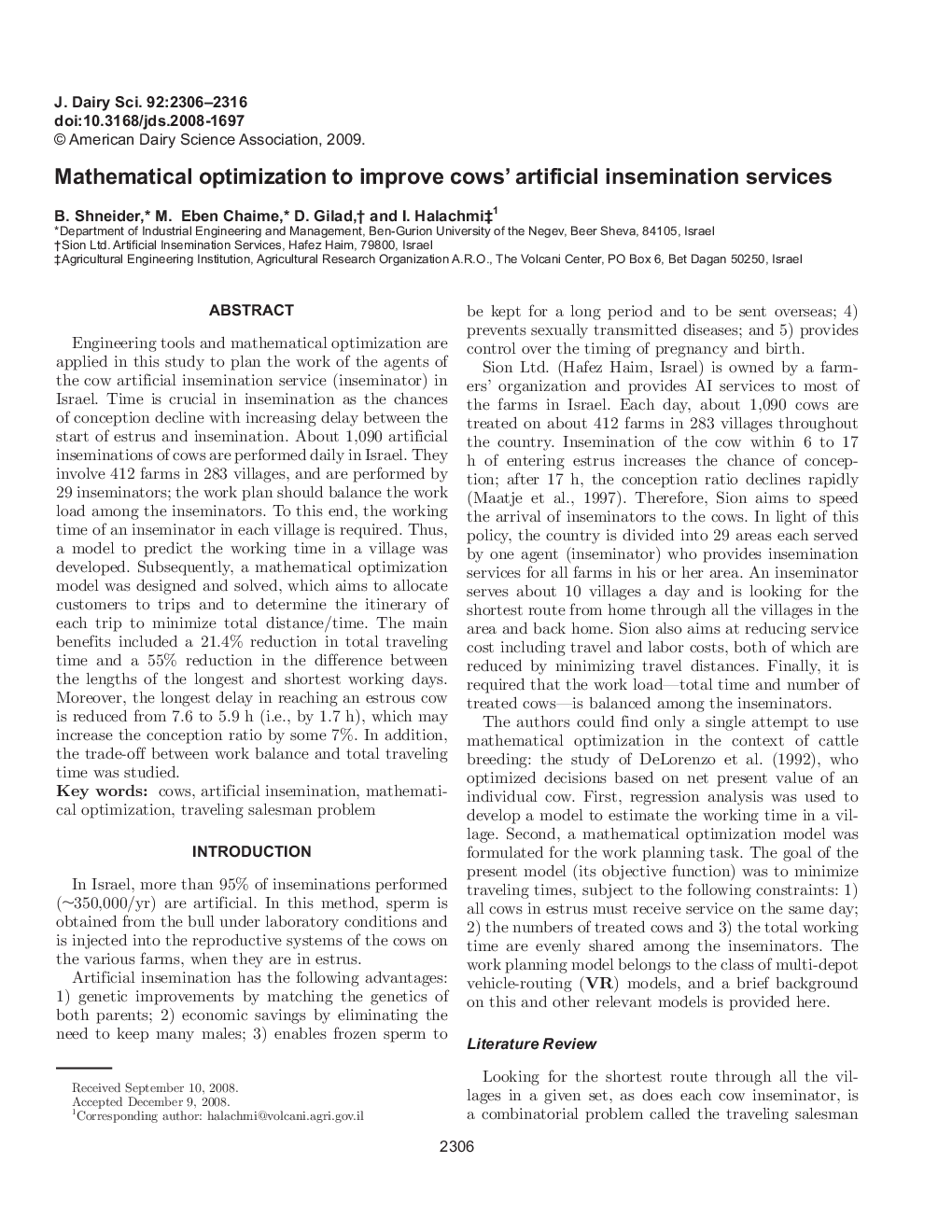| Article ID | Journal | Published Year | Pages | File Type |
|---|---|---|---|---|
| 2439656 | Journal of Dairy Science | 2009 | 11 Pages |
Abstract
Engineering tools and mathematical optimization are applied in this study to plan the work of the agents of the cow artificial insemination service (inseminator) in Israel. Time is crucial in insemination as the chances of conception decline with increasing delay between the start of estrus and insemination. About 1,090 artificial inseminations of cows are performed daily in Israel. They involve 412 farms in 283 villages, and are performed by 29 inseminators; the work plan should balance the work load among the inseminators. To this end, the working time of an inseminator in each village is required. Thus, a model to predict the working time in a village was developed. Subsequently, a mathematical optimization model was designed and solved, which aims to allocate customers to trips and to determine the itinerary of each trip to minimize total distance/time. The main benefits included a 21.4% reduction in total traveling time and a 55% reduction in the difference between the lengths of the longest and shortest working days. Moreover, the longest delay in reaching an estrous cow is reduced from 7.6 to 5.9Â h (i.e., by 1.7Â h), which may increase the conception ratio by some 7%. In addition, the trade-off between work balance and total traveling time was studied.
Related Topics
Life Sciences
Agricultural and Biological Sciences
Animal Science and Zoology
Authors
B. Shneider, M. Eben Chaime, D. Gilad, I. Halachmi,
